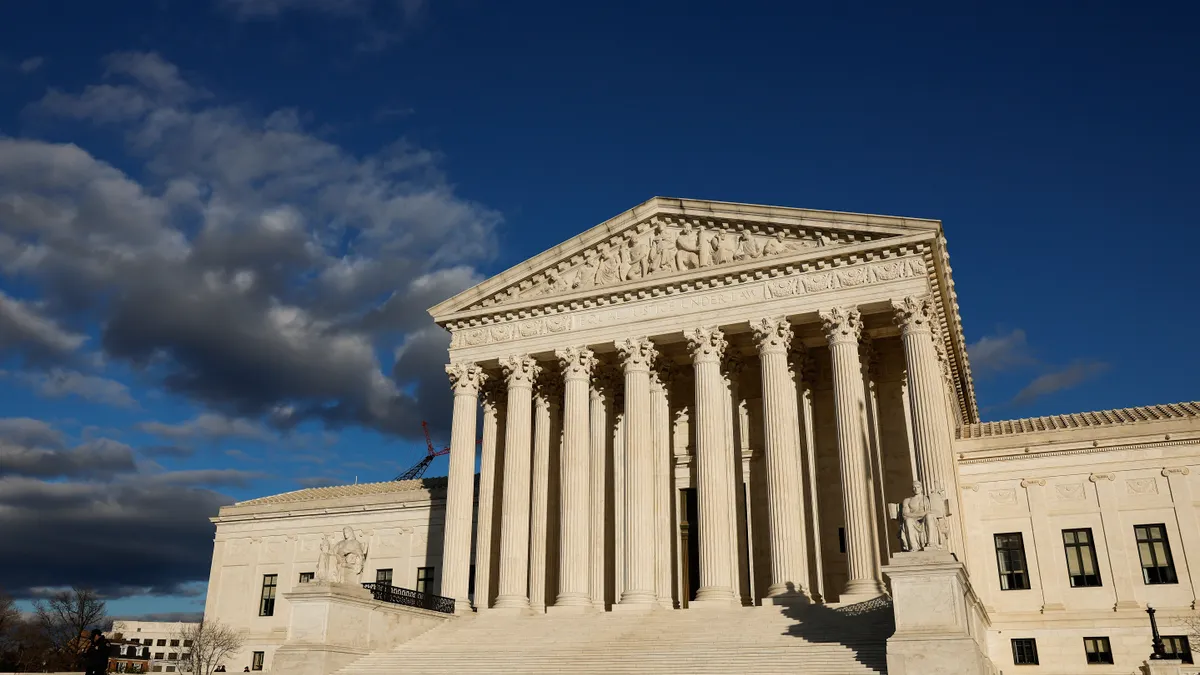Staffed Up is a regular series examining school staffing best practices and solutions for teacher recruitment and retention. Catch up on other installments here.
Teacher preparation experts fear ongoing special education teacher shortages will worsen as the Trump administration continues to downsize the U.S. Department of Education.
Along with mass layoffs at the federal agency, proposals to consolidate federal grants for training special educators are fueling concerns that these moves will exacerbate critical staffing issues.
During the 2024-25 school year alone, 45 states reported shortages in special education — the most frequently reported shortage area nationwide, according to Learning Policy Institute. The other most common shortages reported by states include science (41), math (40), language arts (38), world languages (35) and career and technical education (33), LPI found.
A wave of layoffs in October at the Education Department that decimated most of the Office of Special Education Programs — a decision that is currently tied up in the courts — sent shockwaves throughout the special education community. OSEP helps administer and oversee the distribution of federal funds through the Individuals with Disabilities Education Act.
One of the grants impacted by these changes in particular is IDEA Part D for personnel development to improve services for children with disabilities.
The IDEA Part D personnel development grants received $115 million in federal appropriations during fiscal year 2024. Under the Trump administration’s FY 26 proposal, that same program would be zeroed out, and the newly allocated funds would go to IDEA Part B programs into a single state block grant program.
The budget proposal stated that even with this consolidation of funds, “states would continue to meet key IDEA accountability and reporting requirements aimed at ensuring a free appropriate public education is available to all students with disabilities and protecting the rights of those students and their families.”
Regardless, there’s minimal support in Congress for this kind of state block grant program, as both the House and Senate appropriations committees have rejected the measures in their budget planning for FY 26.
These IDEA Part D funds are typically awarded for five years to state education agencies, school districts, higher education institutions and nonprofits.
On top of challenges for OSEP to oversee the IDEA Part D personnel preparation funds while it is shortstaffed, experts and advocates say the Trump administration’s budget proposal to consolidate IDEA Part D into state block grants will harm teacher prep programs’ ability to train high-quality special educators.
The changes this year are of particular concern for Laurie VanderPloeg, associate executive director for professional affairs at the Council for Exceptional Children, who said the absence of IDEA Part D preparation program funds could reduce the number of special education teacher candidates in educator preparation programs.
Even at current enrollment levels in special education teaching programs, VanderPloeg said, there’s still not enough people in the pipeline to meet the demands in the field.
“So with the reduction in enrollment in the educator prep programs, it's going to reduce our national flexibility with being able to fill all of the open positions with good, qualified personnel,” said VanderPloeg, who also served as director of OSEP during the first Trump administration.
The uncertainty around IDEA Part D grant funds is also hanging over the heads of educator preparation programs, leaving many wondering how long these federal dollars dedicated to training special educators will last, VanderPloeg said. If these grants are disrupted, she said, there could be other implications for teaching candidates currently enrolled in programs that benefit from the funds.
“Would they be able to complete the program in the absence of having funding availability?” VanderPloeg asked. “Would it put them into a position where they would have to financially support themselves through the completion of the program?”
Still, the Trump administration has suggested its efforts to eliminate the Education Department and give more control to the states will not impact instructional services for students with disabilities. President Donald Trump and U.S. Education Secretary Linda McMahon have named the U.S. Department of Health and Human Services as a potential agency to take on special education oversight from the Education Department. But there is no official plan in place to make such a move yet.
Marquita Grenot-Scheyer, former chairperson of the American Association of Colleges for Teacher Education board of directors, also said that the Education Department shakeups impacting special education will only make the declining enrollment in special education teacher training programs worse.
Educator preparation programs are worried about how these cuts will further strain working conditions for special educators, she said — and that’s especially the case if there’s less federal funding for technical assistance and possible increased class sizes in special education programs. At the same time, an analysis of federal data by The Advocacy Institute found that the number of students with disabilities, ages 3-21, could jump by about 1 million students between 2021 and 2025.
VanderPloeg agrees that those workforce strains exist, noting that the optics of these drastic changes to federal special education programs could cause those training in the field to question if there will be adequate resources and professional development opportunities to support them as they enter the profession. The cuts in funds and staffing for oversight to bolster the special education teacher pipeline sends a message to prospective teachers that may deter them from pursuing a career in the field, she said.
“So many of our university programs are uncertain with how best to address this or plan for the future — not only from a recruitment perspective into their educator prep programs, but certainly from a staff perspective as well,” VanderPloeg said.











